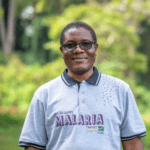New Partnership for African Development workshop

Here at Target Malaria, one of the projects researching on genetic approaches to controlling malaria vectors, we believe that co-development is an essential value of our project. The technology that we are developing needs to respond to the needs of the countries and stakeholders where we operate. For this reason, our teams are very committed to a knowledge engagement approach by which we dialogue with stakeholders to understand their concerns. This is one of the steps for us to take in order to identify potential harms that need to be further analysed for risk assessment.
This is why, our project welcomed the initiative from the New Partnership for African Development (NEPAD), an African Union Agency, organising a series of consultative meetings on gene drive technology development within the various regional economic blocks of African states. In June we travelled to Nairobi, Kenya to meet with the Eastern African countries (from the East African Community, and the Horn of Africa) as well as some Northern African countries (including Egypt) and then later to Gaborone, Botswana to meet the Southern African Development Community member states. These were the second and third meetings of a series that started in 2016 with the Western African countries and will continue in 2018 with the Central African countries.
The 3.5-day workshops aimed at developing amongst regulatory authorities and government representatives a more informed understanding of plausible risks associated with the use of gene drive strategies in the control mosquito-borne diseases. Several of our team members (biologists, entomologists and stakeholder engagement experts) were present to share their experiences. Other institutions from the continent were also there to share their knowledge on vector biology, vector ecology, vector and pest management, risk assessment, communication, etc.
These three workshops led to very interesting discussions about potential benefits and adverse effects of this technology and helped identify areas requiring further research. The gene drive risk assessment part of the workshop was facilitated by ILSI following the problem formulation methodology. Regulators and government representatives from the environmental and health ministries shared their knowledge and experiences with each other and with the project members.
For the project, these consultative meetings are an essential part of the engagement done to identify concerns and potential harms and benefits, and complement similar exercises that were done at the global level. Results of a similar workshop carried out in the US in 2016 can be found here. Furthermore, such regional approach is essential to addressing some likely governance questions about future deployment of gene drive technology for malaria vector control on the continent. Lastly, the experiences shared from previous biological pest control efforts that involved regional coordination were particularly enlightening.
As the Uganda Principal Investigator, I find that these engagements are quite timely especially since we get to learn about recurring concerns from an informed regulatory perspective while the technology is being developed, allowing us sufficient time to design the product with those in mind. It also reassures us that a coordinated gene drive development approach and inclusive dialogue on the continent is being encouraged and can be explored to guide regulation of this important new technology.

